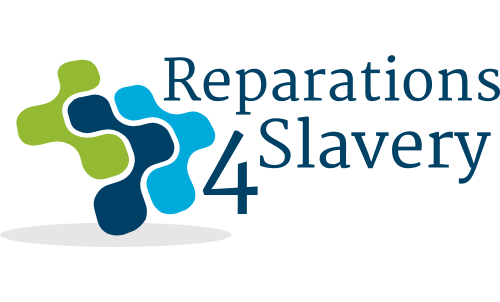American Slavery & the Slave Trade 1861 - 1865
Learn about the American chattel system of slavery
Summary - Wikipedia
Slavery in the United States was the legal institution of human chattel enslavement, primarily of Africans and African Americans, that existed in the United States of America from its founding in 1776 until passage of the Thirteenth Amendment in 1865.
************************************
Edward Baptist argues in his book, "The Half Has Never Been Told: Slavery and the Making of American Capitalism," that the forced migration and subsequent harsh treatment of slaves in the cotton fields was integral to establishing the United States as a world economic power.
"Slavery continues to have an impact on America in the most basic economic sense," Baptist told Here & Now's Jeremy Hobson. "We don't want to hear that at its root, the economic growth depends to a large extent on slavery."
Articles
The Transatlantic Slave Trade (eji.org)
Outreach Programme on the Transatlantic Slave Trade and Slavery | United Nations
Historical Context: Facts about the Slave Trade and Slavery (S. Mintz)
Letters from Black Americans to their former enslavers - The Washington Post
Books
The Half Has Never Been Told: Slavery and the Making of American Capitalism (Edward E. Baptist)
Slavery's Capitalism: A New History of American Economic Development (Sven Beckert)
River of Dark Dreams: Slavery and Empire in the Cotton Kingdom (Walter Johnson)
The Classic Slave Narratives (Henry Louis Gates Jr.)
Podcasts
‘1619,’ a Podcast From The New York Times
The History of American Slavery, with Jamelle Bouie and Rebecca Onion.
Voices from the Days of Slavery: Stories, Songs and Memories (Library of Congress)
Websites
Sources in U.S. History Online: (gale.com)
National Curriculum Unit: Slave Narratives
Home | Middle Passage Ceremonies and Port Markers Project
Slave Archival Collection Database
Memorial Sites
United Nations Outreach Programme on the Transatlantic Slave Trade and Slavery
CONTEMPORARY MONUMENTS TO THE SLAVE PAST
These 9 memorials trace the global impact of slavery
Drexciya: how Afrofuturism is inspiring calls for an ocean memorial to slavery
GROUP URGES ATLANTIC SEAFLOOR BE LABELED A MEMORIAL TO SLAVE TRADING
African Burial Ground - A Sacred Space in Manhattan
Middle Passage Ceremonies and Port Markers Project
Film/Videos
The Half Has Never Been Told | Edward E. Baptist
Questions for Research and Reflection:
- Did your ancestors participate (willingly or unwillingly) in the Atlantic Slave Trade in any way?
- Were they enslavers? Slavetraders? Enslaved people?
- Or, did they benefit/suffer from adjacency to slavery - for instance, in the import/export of goods like cotton, or in the manufacturing of textiles? In the finance or insurance industries?
- How did all white families benefit, either directly or indirectly from the enslavement of Africans?
- Once emancipated, what challenges do freed men and women face in earning a living and educating their children? How do these circumstances compare for whites?
- If you are white, can you trace any family benefits from that era? A tradition of quality education? Philanthropy?
- If you are Black, are there stories passed down about your family's resilience and tenacity? How did your family prevail against white supremacy?
Summary - Wikipedia
Anti-literacy laws in many slave states before and during the American Civil War affected slaves, freedmen, and in some cases all people of color.[1] Some laws arose from concerns that literate slaves could forge the documents required to escape to a free state. According to William M. Banks, "Many slaves who learned to write did indeed achieve freedom by this method. The wanted posters for runaways often mentioned whether the escapee could write."[2] Anti-literacy laws also arose from fears of slave insurrection, particularly around the time of abolitionist David Walker's 1829 publication of Appeal to the Colored Citizens of the World, which openly advocated rebellion,[3] and Nat Turner's slave rebellion of 1831.
The United States is the only country known to have had anti-literacy laws.[4]
Between 1740 and 1834 Alabama, Georgia, Louisiana, Mississippi, North and South Carolina, and Virginia all passed anti-literacy laws.[5] South Carolina prohibited teaching slaves to read and write, punishable by a fine of 100 pounds and six months in prison, via an amendment to its 1739 Negro Act.[6]
A website titled "Fight Municipal Court Abuse (court.rchp.com) includes the following in its list of significant anti-black laws:
- 1847, Missouri: Prohibited assembling or teaching slaves to read or write[7]
- 1829, Georgia: Prohibited teaching blacks to read, punished by fine and imprisonment[8]
- 1832, Alabama and Virginia: Prohibited whites from teaching blacks to read or write, punished by fines and floggings
- 1833, Georgia: Prohibited blacks from working in reading or writing jobs (via an employment law), and prohibited teaching blacks, punished by fines and whippings (via an anti-literacy law)
- 1847, Missouri: Prohibited teaching blacks to read or write[9]
***********************************
“Knowledge makes a man unfit to be a slave.”
― Frederick Douglass
Articles
How Literacy Became a Powerful Weapon in the Fight to End Slavery (C. Coleman)
Anti-literacy Laws -There Were Laws Against Teaching Blacks to Read? (J. C. Abercrombie)
Reading For the Enslaved, Writing For the Free: Reflections on Liberty and Literacy (E.J. Monaghan)
Self-Taught: African American Education in Slavery and Freedom (Heather A. Williams)
Books
Videos
"The Alphabet is an Abolitionist. If You Would Keep a People Enslaved, Refuse to Teach Them to Read"
The Legacy of Anti-Literacy Laws
Questions for Research and Reflection:
- In what ways does preventing or limiting Black literacy during the enslavement era contribute to intergenerational poverty?
- How does Black illiteracy figure into Black land theft or suppression of Black voting rights? What other effects might illiteracy have?
- How many generations of your family have gone to college? How did graduating influence your ancestors' choice of profession and income level?
- How does education allow for the transfer of generational wealth?
- Would you consider disinvestment in public schools a modern version of anti-Black literacy policy? Why or why not?
